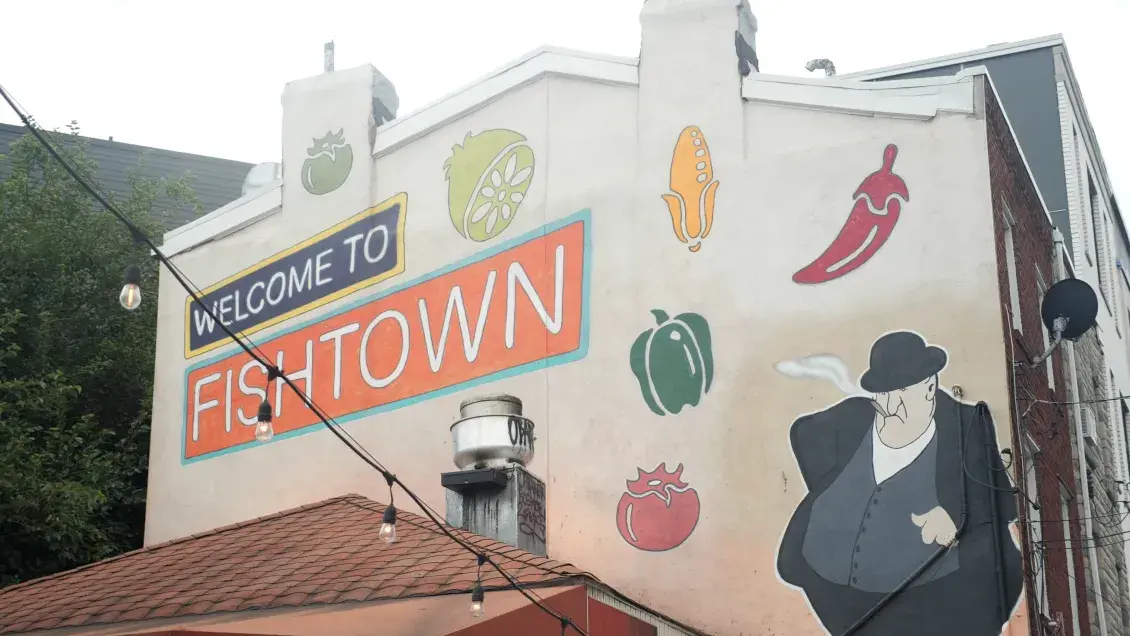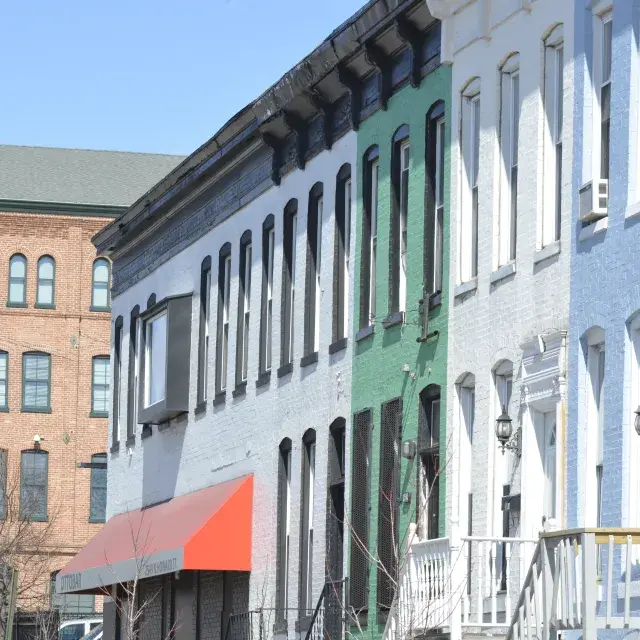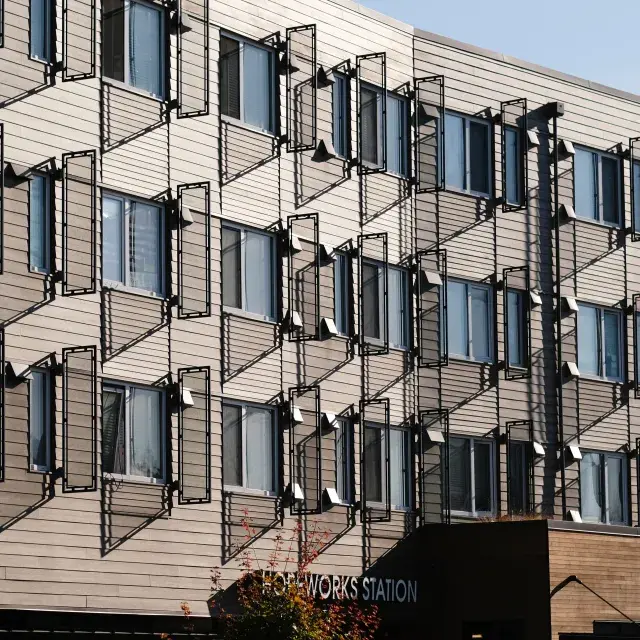In the heart of Philadelphia’s South Kensington-Fishtown neighborhood, a century-old lamp factory is once again lighting the way — this time, as a symbol of community-centered investment.
Oxford Mills, financed in part through $10 million in New Markets Tax Credit (NMTC) allocations from Enterprise Community Partners, has been transformed into a vibrant home for local teachers, lower income families, and community-serving nonprofits. The adaptive reuse project created 114 rental homes and 42,000 square feet of below-market office space, currently home to eight nonprofits that have created more than 218 full-time jobs — a huge boost in a neighborhood that was considered severely distressed only 15 years ago.
When the NMTC investment closed in 2012, the census tract’s poverty rate stood at nearly 34%, with an unemployment rate more than three times the national figure. Philadelphia-based D3 Real Estate Developers opened Oxford Mills in 2014 in partnership with Seawall — and by 2020, those neighborhood statistics had shifted dramatically. Poverty dropped by more than six percentage points. The median family income grew by more than 80%. Unemployment fell by nearly five points.
But behind each of those numbers are human stories, captured in a newly released impact report from Enterprise’s NMTC business: teachers who can live where they work, mission-driven organizations delivering critical services, and longtime residents who have watched the neighborhood change — all while maintaining a stake in its future.
Old Building, New Opportunities
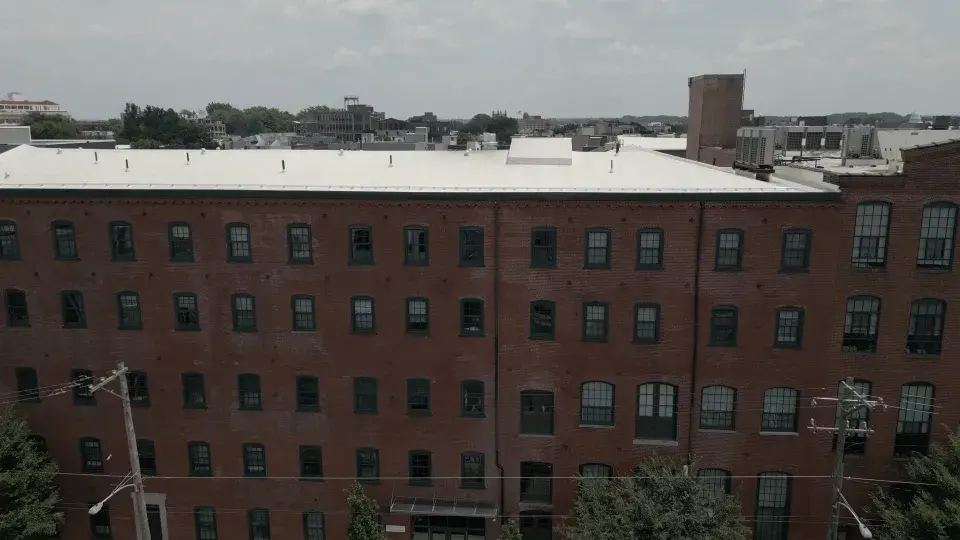
Oxford Mills straddles the line of South Kensington and Fishtown, two neighborhoods northeast of Philadelphia’s Center City. With thriving art and culinary scenes, it’s become a desirable place to live. Such a neighborhood shift often results in workers like teachers becoming priced out of the area — but not with Oxford Mills.
Eric Wright, who teaches English in a nearby community, has called the neighborhood home since the former factory reopened in 2014. He lives in one of 65 units specifically reserved for local teachers, which the property offers at a 20% rent discount to ensure they can live in the community they serve. That proximity really makes a difference, he said, both for him and his students.
“I’m not wasting 45 minutes to commute, like many of my colleagues. It allows me to be a better teacher in terms of content and preparedness,” he said. It also means stronger relationships with students, deeper ties to the community, and the ability to serve as a role model outside the classroom walls. “Kids see people in their neighborhood who have professional careers … it rubs off on them,” he added.
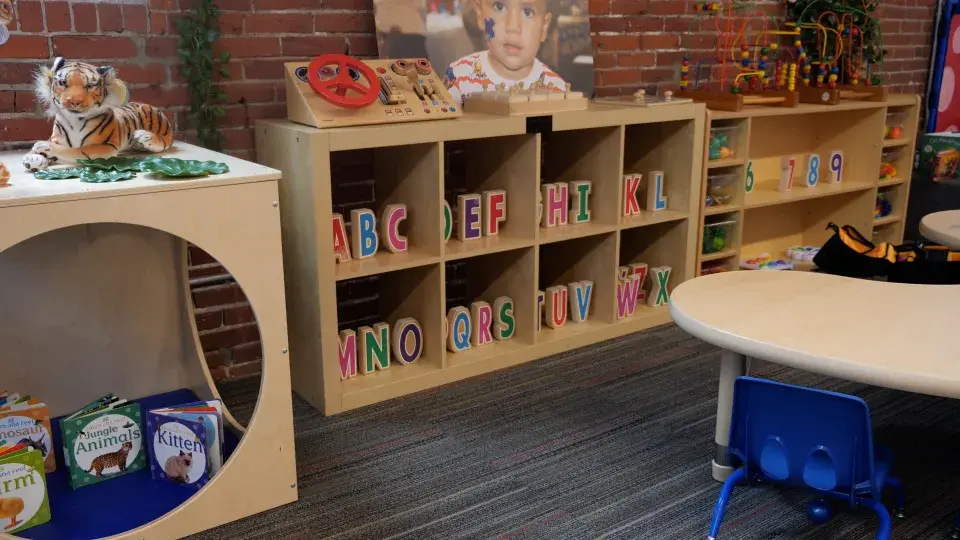
Oxford Mills doesn’t just serve the people who live there—it also anchors vital community infrastructure. Inside its brick walls are organizations like Teach for America, Beyond Literacy, Education Plus Health, and the Health Federation of Philadelphia. These nonprofits work across the education and social services spectrum, from early childhood programs to school-based health clinics to adult literacy initiatives.
In 2023 alone, Beyond Literacy served over 1,600 adults taking English classes and other high school equivalency programs. The Health Federation supported more than 180 families through home-visiting services. And Education Plus Health connected thousands of students with critical health resources directly in their schools. Ultimately, the result is a campus-like ecosystem of care and opportunity—one that wouldn’t be financially viable without NMTC financing.
“The New Markets Tax Credit, for a project like Oxford Mills, is essential. It incentivizes a developer to be able to not only refurbish and repurpose a building, but to be able to fulfill the concept—to provide housing to teachers and educators and have the nonprofit space that otherwise they could not afford.
Marc Collazzo, executive director of the Fishtown Kensington Area Business Improvement District
For longtime residents, that transformation has been significant—and it’s one they’ve been able to take part in, including through new employment opportunities. Richard Revere, a former employee of the original lamp factory, was hired by D3 to help transition the facility and ultimately stay on full-time. That’s given him a front-row seat to the project’s development and the neighborhood’s growth.
“When D3 renovated this factory, there were no eateries. No apartment buildings. None of this was here,” said Revere, who started working at the factory in the 1990s. In the years following the Oxford Mills’ ribbon cutting, Fishtown has seen rising property values, new housing developments, dramatically increased restaurant and nightlife options, and improved public transit to help connect the neighborhood to the rest of Philadelphia.
“I watched the whole transformation,” Revere added, “and I’m still amazed.”
Learn more about Oxford Mills and the New Markets Tax Credit.

